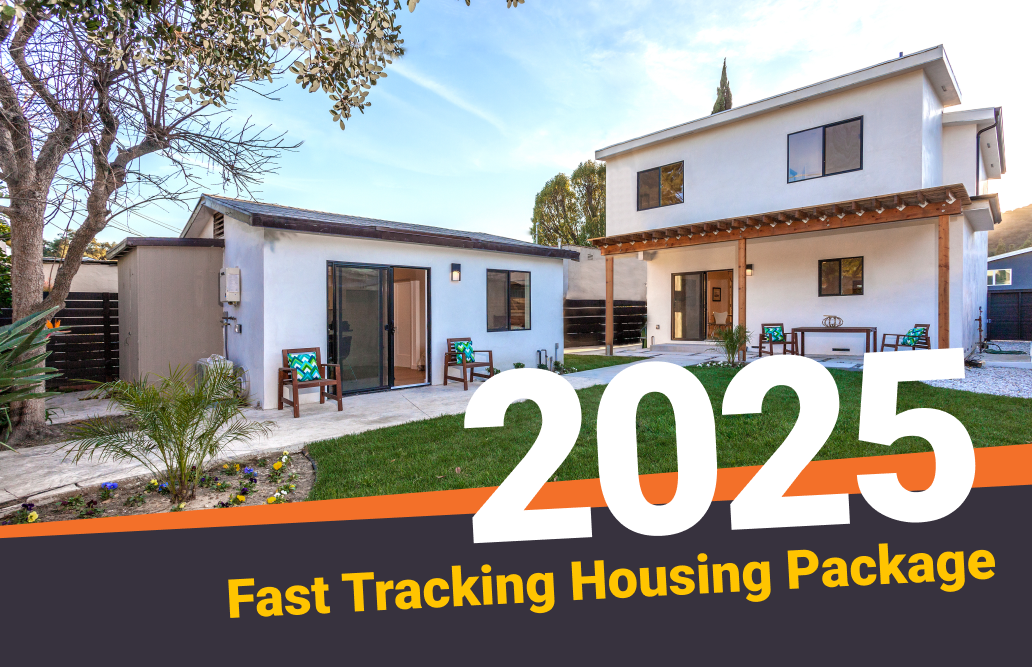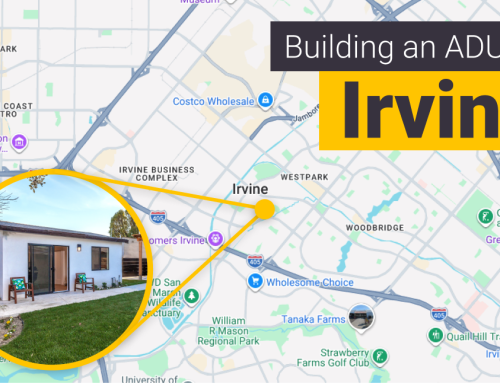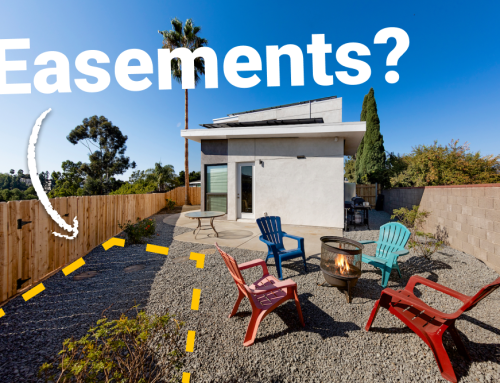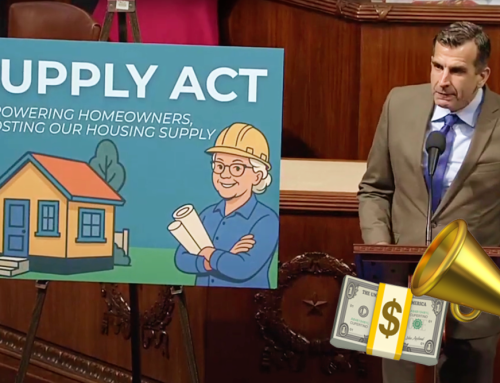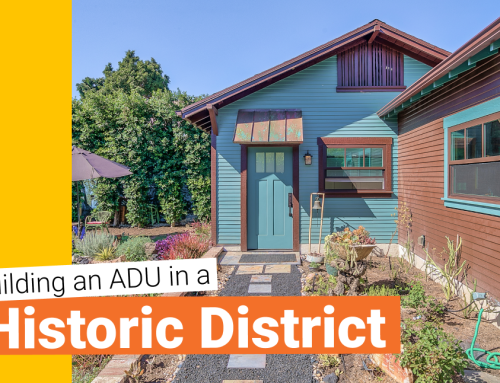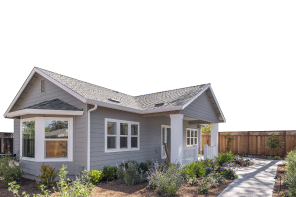California’s housing crisis has long been a source of frustration for homeowners, developers, and local governments alike. But this year, lawmakers are pushing forward with one of the most ambitious pro-housing agendas in recent memory.
In March 2025, Assemblymember Buffy Wicks introduced the Fast-Track Housing Package, a sweeping bundle of legislation backed by California YIMBY aimed at accelerating housing approvals across the state, without rolling back environmental protections.
Since then, many of these bills have cleared their first hurdles and are making their way through the Legislature with broad support.
These reforms have the potential to significantly reshape the landscape for residential construction in California.
Here’s a breakdown of the key bills in the package, where they stand now, and how they could affect property owners looking to build.
What is the Fast‑Track Housing Package?
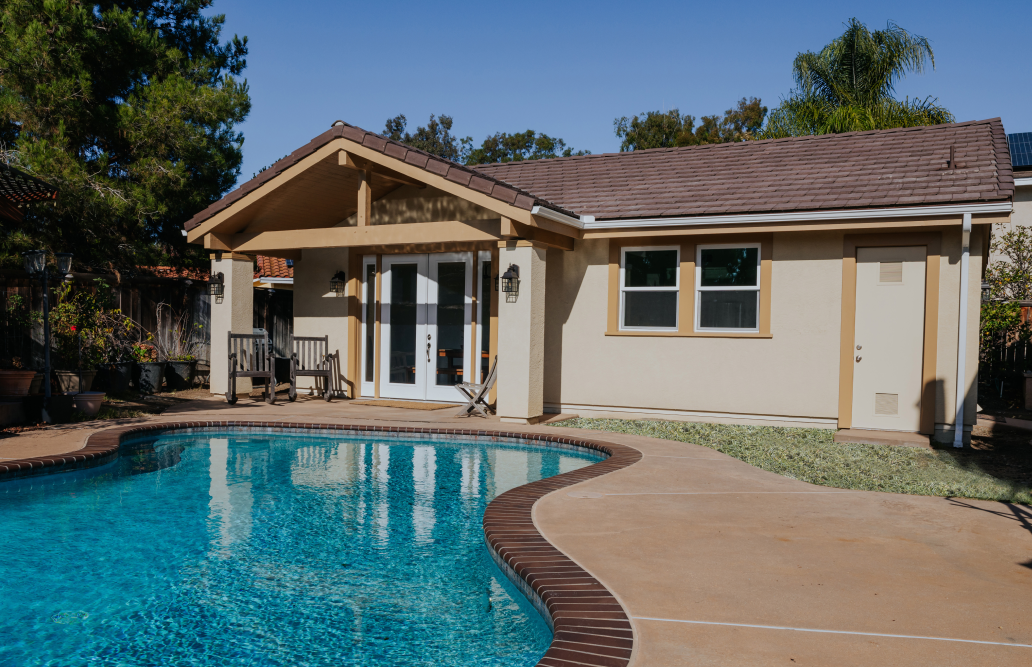
In a press release by Assemblymember Buffy Wicks, California lawmakers launched a bold legislative initiative known as the Fast‑Track Housing Package. This comprehensive effort, covering more than 20 bills, aims to cut through bureaucratic delays and streamline the housing development process across the state.
At a joint press conference in the Governor’s Press Room, Wicks emphasized that “it’s not about cutting corners — it’s about being honest that what we’re doing isn’t working.”
The package zeroes in on key bottlenecks throughout the housing approval lifecycle:
- Application: streamlining initial intake and documentation.
- CEQA compliance: adding targeted environmental exemptions for qualifying projects.
- Entitlement: speeding up planning and zoning approvals.
- Post-entitlement: accelerating building permits, inspections, and certifications.
- Enforcement: creating more certainty and accountability in final project sign-off.
In sum, the Fast‑Track Housing Package is California’s most ambitious legislative strike at the housing crisis in recent memory, designed to bring clarity, speed, and responsible reform to every phase of the housing pipeline. Property owners, developers, and local governments alike stand to benefit from a system that finally works with them, not against them.
Without further ado, let’s take a peek at what some of these bills entail.
Key Bills in the Fast‑Track Housing Package
While the package is intended to make a difference across the housing industry as a whole, we’re seeing some incredible changes to ADU policies especially. Here are the standouts.
AB 609 (Wicks)
Status: Passed
This bill creates a targeted exemption from the California Environmental Quality Act (CEQA) for infill housing in urban areas. CEQA is a state law that requires environmental review of development projects, originally intended to prevent environmental harm. However, it has increasingly been used to delay or block housing, especially in already-developed neighborhoods. AB 609 aims to streamline approvals for housing in areas with existing infrastructure while keeping core environmental protections in place.
AB 1308 (Hoover)
Status: Advancing through Legislature
This bill takes direct aim at the inspection backlog stalling many projects. It requires local building departments to publish inspection timelines. If a city fails to complete inspections within 30 days, licensed third-party inspectors can step in.
The bill also mandates that cities must respond to third-party reports within 14 days, giving builders more control and predictability in the final stages of construction.
SB 79 (Wiener)
Status: Passed Senate, in Assembly Local Government
SB 79 allows more multi-family housing to be built in transit corridors, areas located near public transportation such as bus routes, light rail, and major transit hubs. These zones are ideal for higher-density housing because they reduce car dependency and support more sustainable, accessible communities.
The bill also streamlines permit reviews in these areas, helping cities add housing where infrastructure can already support it.
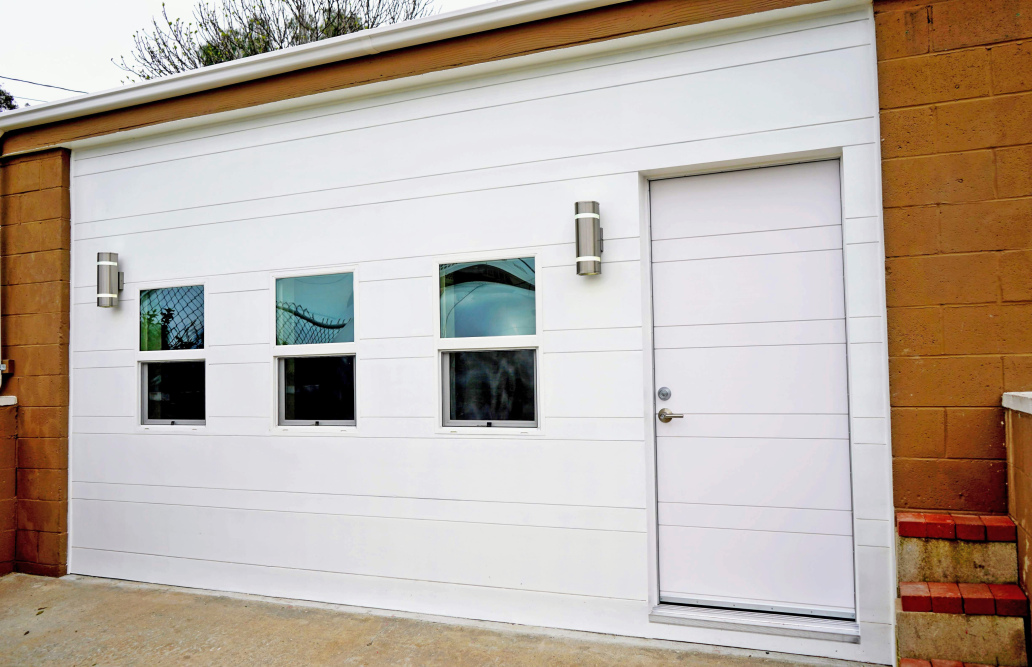
AB 1061 (Quirk-Silva)
Status: Cleared Senate Housing, headed to Senate Local Government
Currently, historic districts are often exempt from the state’s duplex-friendly SB 9 legislation. AB 1061 closes that loophole, extending SB 9 rights to historic districts, allowing property owners in these areas to split lots and build duplexes where it’s otherwise prohibited.
AB 253 (Ward)
Status: Passed Assembly, in Senate
When cities miss the 30-day deadline to review permit applications, AB 253 lets developers hire third-party reviewers to step in and complete the job. It’s another important lever to hold local agencies accountable and keep projects moving.
AB 1154 (Carrillo)
Status: Passed Assembly, in Senate committees
This bill makes two big changes for Accessory Dwelling Units:
- Removes owner-occupancy requirements for Junior ADUs that don’t share sanitation with the main home.
- Waives parking requirements for small ADUs under 500 square feet. These changes could make ADUs more accessible, especially for renters or small-property owners.
AB 1007 (Rubio)
Status: Advancing
Known as a “shot clock” reform, AB 1007 reduces the deadline for responsible agencies to respond to housing permit applications, from 90 days to just 45. It’s designed to cut administrative lag in the early permitting stages.
AB 818 (Avila Farias)
Status: Advancing
In response to post-wildfire rebuilding delays, this bill streamlines permits for homeowners rebuilding after a natural disaster. It sets firm deadlines for permit processing and caps excessive fees, helping residents get back into their homes faster.
AB 1206 (Harabedian)
Status: Advancing
AB 1206 expands California’s Pre-Approved Housing Plan programs, currently popular for ADUs, to include both single-family and multifamily homes. The goal is to make it easier and faster to build with standardized, pre-reviewed designs.
Related Housing Reform Bills to Watch
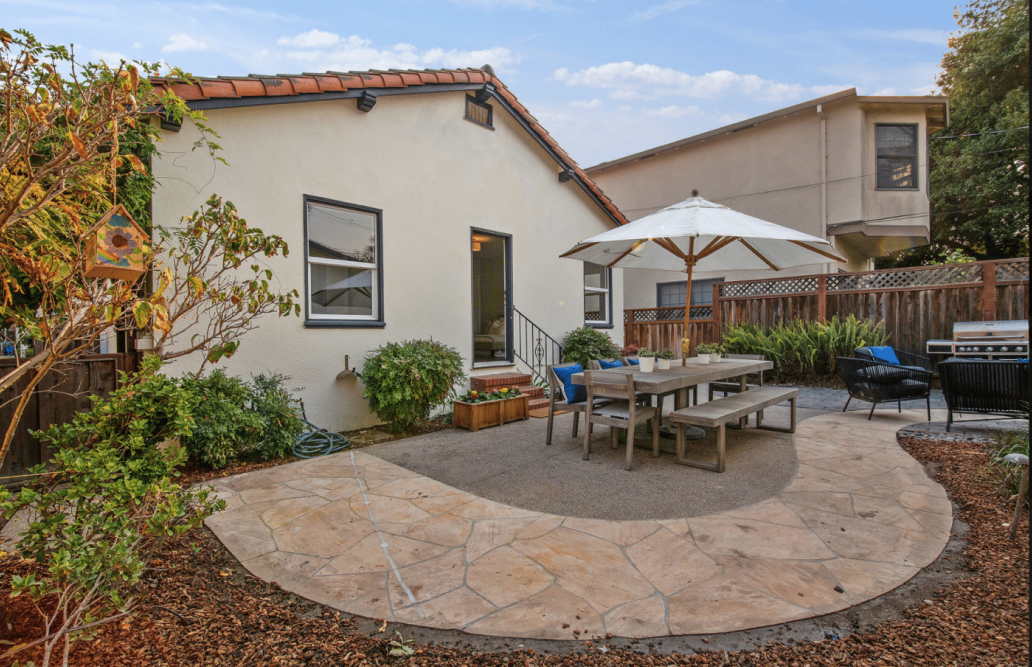
In addition to the Fast‑Track Housing Package, several other key bills are advancing through the Legislature that could further expand housing access and affordability in California. While not part of the main bundle, these proposals tackle persistent challenges like local resistance to ADUs and the rising cost of development fees.
SB 9 (Arreguín, 2025)
Status: In Assembly Local Government
This bill gives the California Department of Housing and Community Development (HCD) greater authority to override local ADU ordinances that conflict with state law. Local governments have often passed restrictive ADU rules that quietly undermine the state’s push for more housing. SB 9 would ensure that local policies comply with state-mandated ADU standards, making it easier for homeowners to build.
SB 315 (Grayson)
Status: Designated a two-year bill
Development fees—particularly park-impact fees—can add tens of thousands of dollars to the cost of building a home. SB 315 seeks to cap excessive park fees that are often imposed without clear justification. The goal is to make small-scale infill projects and ADUs more financially feasible for individual homeowners and small developers.
What This Means for Homeowners and Builders
California’s 2025 housing legislation marks one of the most significant pushes in recent memory to address the state’s housing shortage. These bills are designed to make the building process faster, more predictable, and more accessible.
But the legislative landscape is still shifting. Many of these bills are making their way through committees, and final language or implementation timelines may change. For homeowners, designers, and builders, staying informed is essential.
Want to stay ahead of the curve?
Sign up for our free webinar series, where we break down the latest regulation changes, share expert-backed design hacks, and answer your questions in real time.
Join the Webinar Series to make sure you don’t miss a beat.

